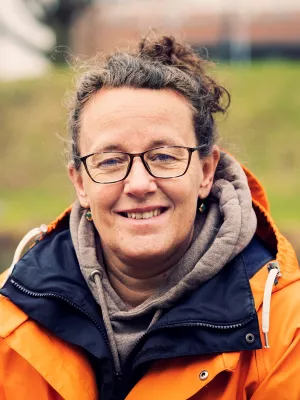
Johanna Alkan Olsson
Universitetslektor

Beyond participation : when citizen engagement leads to undesirable outcomes for nature-based solutions and climate change adaptation
Författare
Summary, in English
Scholars and practitioners are increasingly promoting so-called nature-based approaches for urban climate change adaptation. There is widespread consensus that they both support and require transdisciplinary approaches, notably by involving citizens in the change process and finding innovative ways to unite different actors’ efforts and capacities. However, there is little empirical evidence regarding the actual value of citizen involvement to sustainability in this field. Against this background, this paper examines whether (or not) current forms and conditions of citizen involvement help to create a platform to support nature-based solutions and ensure a transformative adaptation process. The results show that under current conditions, citizen engagement often hampers sustainable outcomes. In fact, current structures and mechanisms for mainstreaming nature and climate considerations into sectoral planning are limited and, furthermore, neglect citizen involvement. In addition, there is a blind spot with respect to personal spheres of transformation toward sustainability regarding citizens, civil servants, and decision-makers. Key constraints are power structures and the lack of cognitive/emotional and relational capacities required for improved democratic governance. If we are to tap into the potential of nature-based solutions to increase climate adaptation governance, we need targeted financial and human resources, and greater capacity to overcome current constraints and support all levels and phases of mainstreaming, notably planning, implementation, monitoring, and learning.
Avdelning/ar
- LUCSUS
- Centrum för miljö- och klimatvetenskap (CEC)
- BECC: Biodiversity and Ecosystem services in a Changing Climate
Publiceringsår
2020-01
Språk
Engelska
Sidor
235-254
Publikation/Tidskrift/Serie
Climatic Change
Volym
158
Issue
2
Dokumenttyp
Artikel i tidskrift
Förlag
Springer
Ämne
- Climate Research
- Political Science (excluding Public Administration Studies and Globalization Studies)
Nyckelord
- Citizen engagement
- Citizen participation
- Citizen science
- Climate change adaptation
- Co-Production
- Collaborative governance
- Disaster risk reduction
- Ecosystem services
- Ecosystem-based adaptation
- Ecosystem-based planning
- Emotions
- Nature-based solutions
- Public participation
- Sustainability
- Values
Status
Published
ISBN/ISSN/Övrigt
- ISSN: 0165-0009